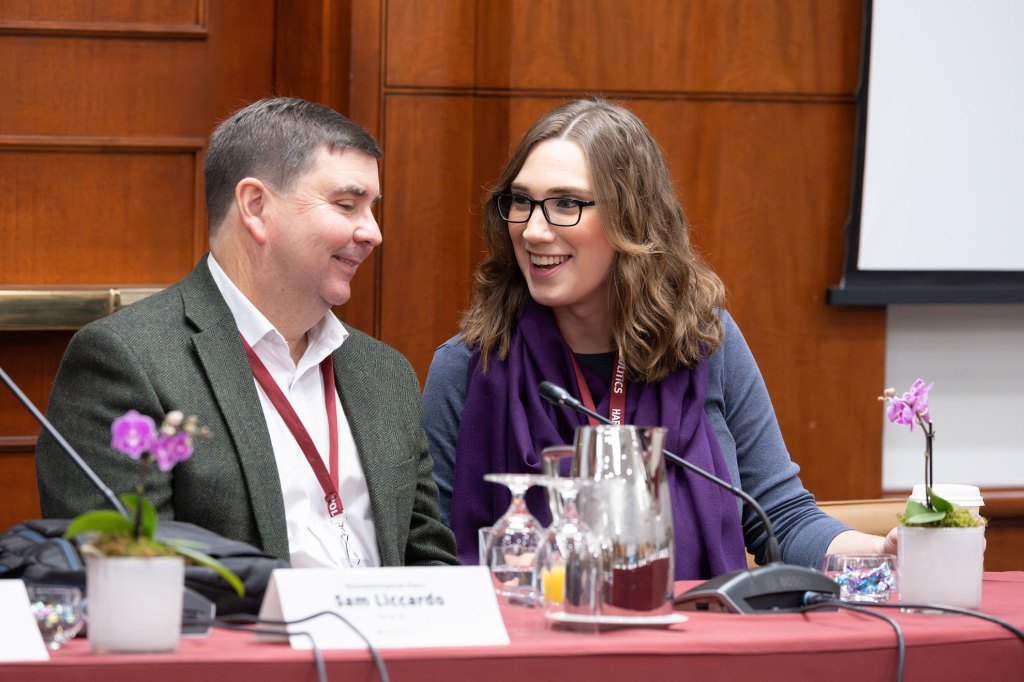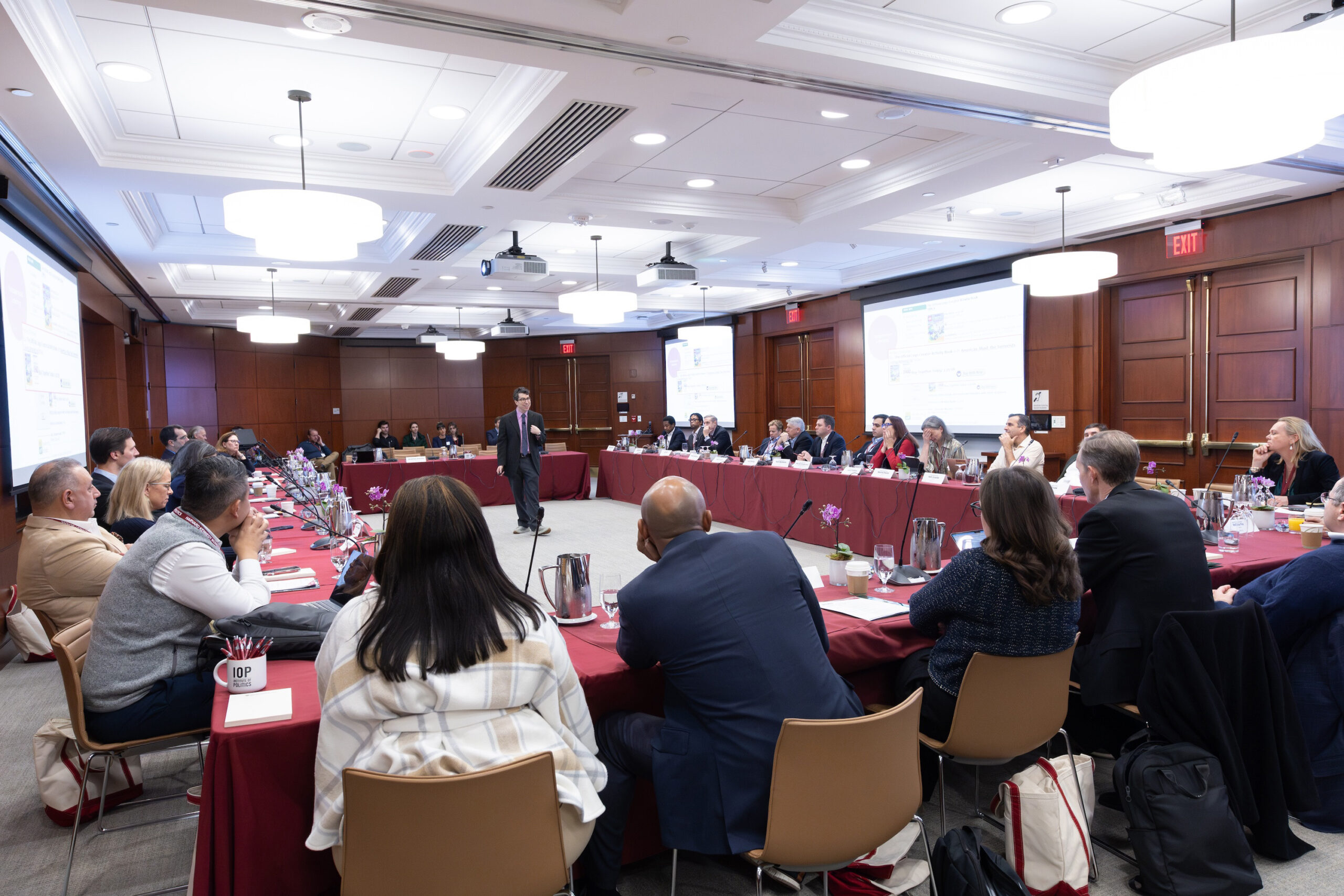Starting a new job can be intimidating and stressful — what are the unwritten rules, whom can I ask for help? Similarly, the first day of school can be both exciting and a little daunting — will I do well, where I will sit at lunch? Combine the two and you have a sense of what newly elected members of Congress are experiencing right now.
Every two years since 1972, the Institute of Politics tries to ease that transition by inviting first-year lawmakers to Harvard Kennedy School for an intensive three-day briefing about what they can expect once they’re sworn into office.
This year’s program, held Dec. 8-10, offered 37 new members from both parties an opportunity to talk to current and former lawmakers and hear from Harvard faculty on key domestic and international policy topics including economics, national security, and artificial intelligence. The event included an address by Kennedy School Dean Jeremy Weinstein, who also took questions.

Veteran lawmakers, such as Republican Dan Crenshaw of Texas and Democrat Cheri Bustos of Illinois (who held office from 2013 to 2023), provided new members guidance on media coverage, effective messaging, and how to manage relationships with their new “classmates.”
“One of the things that was particularly important … was the message that that we heard time and time again from current and former members about the importance of kindness and collegiality toward our colleagues on the other side of the aisle,” said Representative-elect Sarah McBride, a Delaware Democrat.
The first openly transgender woman elected to Congress, McBride was the focus of national news coverage when House Speaker Mike Johnson changed House rules at the urging of some Republican lawmakers to restrict restrooms to biological sex.
“Just as Americans every single day go into workplaces with people with different backgrounds and different perspectives but find a way to work together with kindness and collaboration, we too should summon that basic common sense and basic common decency to work with our colleagues, regardless of our party affiliation or ideology, in ways that reflect the kind of diversity of thought and diversity of experience that we see in workplaces across the country,” said McBride.
Michael Baumgartner, M.P.A./I.D. ’02, a Republican in Washington state’s 5th district, said while he’s “really proud” to be an HKS graduate, he was hesitant to publicize that he was attending because of what he called the School’s “unwelcoming reputation” on the right when it comes to conservative viewpoints.
“And so, I was really pleased to hear the dean recommit to viewpoint diversity and intellectual diversity and to making sure that conservative Republicans feel like they have a place at the Kennedy School, too,” he said.
While pleased with Republican control of Congress and the White House, Baumgartner noted the party’s razor-thin margin in the House and also the temporary nature of political victories.
“So, even though we’re going to be in charge this session, it may not always be that way,” he said. “And I hope some of the contacts and relationships that I made at the Harvard orientation will be helpful if in the event that we’re not in the majority.”
Representative-elect Janelle Bynum, a Democrat who flipped a Republican-held seat in Oregon’s 5th district to become the state’s first Black member of Congress, said that there were two panels she found “very helpful.”
“The first was the one on AI. That just spun up a lot of different thoughts like moral authority and who gets to participate in that research or in that ecosystem; the financial impact of what’s being developed in AI.
“I’m always thinking, ‘How can we use a technology that may not be being deployed to our benefit right now, but how can we shift that or how can we [get it to] do more good than it is doing?” said Bynum, who also credited a talk about polls and Gen Z voters with John Della Volpe, the IOP’s director of polling.
The institute’s director, Setti Warren, said that fostering bipartisanship is one of the conference’s main objectives.
“Bringing people from across the aisle together … is extremely important to us, giving them an opportunity to forge relationships in a place that’s not Washington, D.C.,” he said.
Asked about her hopes and expectations for the new Congress, Bynum said, “The key word that has been emerging for me is governance. I hope Democrats and Republicans take seriously the need to govern” rather than squabbling or attention-seeking.
“Like, do the work.”
Source link

